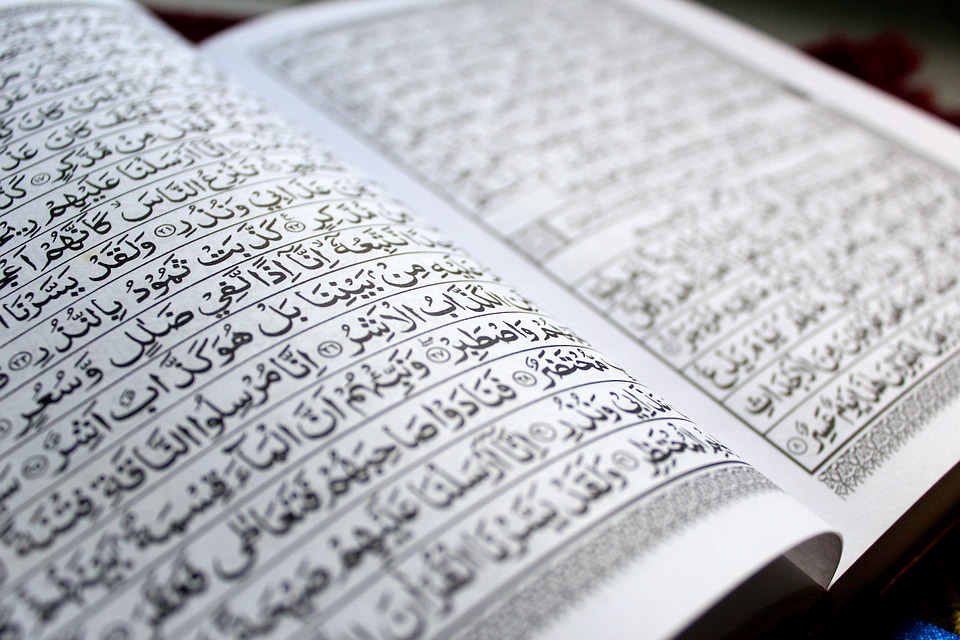A Thematic Tafseer of Surah Kahf
Surah Kahf begins by laying down the fundamental theme of the Surah. The opening verses praises Allah for revealing the Qur’an as a means of guidance for mankind, and a warning to those who persist in disbelief.
The Messenger (peace be upon him) is then told not to grief too much over those who persist in disbelief. As they are responsible for their own choices, and he has done his job to the best of his ability.
The core theme of Surah Kahf is then summarized in verses seven and eight. In which Allah say, “Definitely, I have made whatever on earth beautiful, to test which of them are best in their deeds.
Then I will make whatever is on it dry bare soil.” This is the essence of the message of Surah Kahf. The world was created to test us and everything in it is a test and will eventually come to an end. So do not be fooled by the beauty of this worldly life.
The Seven Sleepers
After mentioning this theme, Allah then goes directly into the first story. Which is told first in summary then in details. The purpose of this could have been to get the attention of the disbelievers of Makkah. So that they listen to the full detailed story and derive lessons from it.
The story is about seven young men who were the only believers in their city. Fearing persecution, they fled to a cave and asked Allah for assistance. Allah answers their dua by putting them to sleep for three centuries, and preserving their youth and health through this time in miraculous ways.
Upon awakening, the youth are discovered by the people of that century. They serve as a reminder of the reality of resurrection for them. The young men pass away in a way not mentioned in the Qur’an. The people dispute over what to do with their graves. Unfortunately, the prevailing opinion was to build a Masjid over their graves. This has been misunderstood by some Muslims as permission in the Qur’an to build Masjids over graves of righteous people.
Reality, however, is that the Qur’an does not justify the actions of these unknown people. There are many Hadiths that prohibit building Masjids over graves. So the actions of these unknown people cannot be taken as evidence in light of clear Hadith.
Lessons from this story
The next set of verses then highlight a few lessons from this story. Like the importance of saying Inshaa Allah when planning for the future. The importance of good company, the dangers of evil company and the importance of focusing only on beneficial knowledge are all lessons from this story.
It is rounded off with a reminder of the theme of the Surah. We will be accountable to Allah for our choices on the Last Day. The believers will be rewarded with Paradise while the disbelievers will face punishment in the Hellfire.
The Parable of the Farmer
The Surah then moves on to the second story about two men. One who was wealthy and the other was less fortunate. I am of the opinion that this story is a parable, and not necessarily a true story, and Allah knows best.
This is the only story in this Surah that begins with the words “Give them the parable of two men, whom We gave one of them two gardens.” This supports the opinion of it being a parable.
The story shows us that Allah blessed one man with abundant wealth and a successful farm. But he grew arrogant, felt entitled and was ungrateful to Allah for His blessings. His poorer friend reminded him to be grateful to Allah. He reminded him to seek His forgiveness before Allah takes his wealth away. But the warning went with recognition.
The man eventually lost all his wealth and property and was regretful for his attitude. He had failed the test of material success, which is a test we face almost on a daily basis in this Capitalistic society. The story ends with a reminder that this world is like water, which I have explained elsewhere. As well as a reminder that our wealth and children are merely a test for us, so they should not distract from the purpose of life.
Adam and Shaytaan
This story is followed by a series of verses reminding us about the Last Day. In between these is a reminder of the story of Adam and Shaytaan. A reminder that it is Shaytaan who wants us to fail the test of life. So never forget who your enemy is.
This set of verses ends with a reminder that every person and every nation has an appointed time, before which they need to repent. Once that appointed time comes, Allah’s punishment descends and it is too late to change.
Prophet Musa’s Adventure
This is followed by the third story. Which begins with Prophet Musa (peace be upon him) and his young servant Yusha (peace be upon him) embarking on a long journey to seek knowledge from a righteous stranger. We know from an authentic Hadith that this journey was initiated because Musa learned that there is a man who knows things which he does not know. So with great zeal for knowledge and humility, this leader of his nation set off to meet and learn from this stranger.
Musa treats his servant with utmost respect and serves as a role model for employers. After some setbacks, the two of them eventually encounter Al-Khidr, the mysterious Prophet who they wish to learn from.
Al-Khidr agrees to allow Musa to accompany him on the condition that he does not ask any questions until Al-Khidr is ready to explain his actions. This condition proves too difficult for Musa to fulfill as he witnesses strange and seemingly wrong actions on the part of Al-Khidr.
Al-Khidr damages a boat of some poor sailors who gave them a free ride. Then he kills a random young boy. Finally, he fixes a wall in a town full of impolite people without asking for anything in return.
Khidr’s Explanation
Musa is baffled by the actions of Al-Khidr and had to ask about the reasons behind them. Al-Khidr explained that everything he did was based on direct revelation from Allah. The poor sailors were about to have their boat usurped by a tyrant king. So Allah protected their boat by having it damaged.
The young boy was not random. Rather Allah knew he was going to grow up to be a tyrant and cause great grief to his righteous parents. So to protect them Allah took their child’s life at a young age. The wall hid a treasure which a righteous man left behind for his orphaned children.
Had the wall collapsed, the townsfolk would have usurped the wealth of the orphans so Allah protected their wealth by revealing to Al-Khidr to fix the wall.
This story is very deep and in it, we learn about the mysterious ways in which Allah works. Very often the seeming tragedies in our lives are actually Allah’s way of protecting us from greater harm. So we must trust His Wisdom and be patience during difficult times.
The Great Conqueror
This story is immediately followed by the story of Dhul Qarnayn. Who conquered the East and West and ruled with justice. He did this by letting the good people and the simple people live in peace. While punishing the criminals and imprisoning the evil Gog and Magog tribes. A good leader is merciful to his citizens while strict in dealing with the harmful elements of society. Dhul Qarnayn is an excellent example of this.
This story transients into a warning that Gog and Magog will be unleashed before the Last Day. Then they will be thrown into Hellfire.
Conclusion
The Surah ends as it began. By reminding us that those who fail the test of life will enter the Hellfire. Those who pass will be blessed with Paradise. And reminding us that it is only true faith and righteous deeds that can benefit us on that day.
This in summary is Surah Kahf. A weekly warning about the tests of life, with role models on how to deal with such tests. A reminder of the consequences of failing that test, and the rewards for passing it.
In the next chapter, we will reflect deeper on individual verses and stories from this Surah. We ask Allah to protect us from the trials of life and make us from those who are successful in both worlds.
For more thematic Tafseer, get your copy of Themes of the Quran today.







